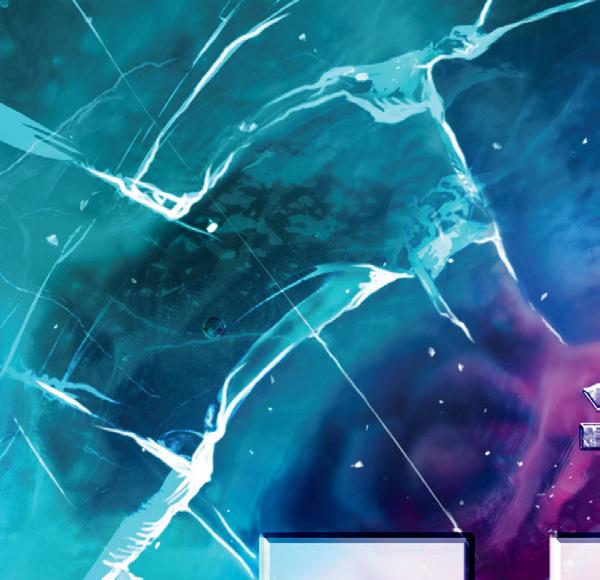

WHEN YOU’RE INSIDE, THE WORLD IS WATCHING.
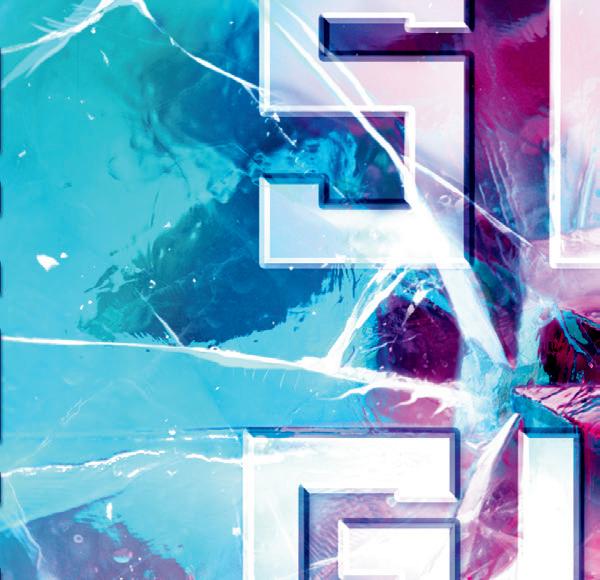
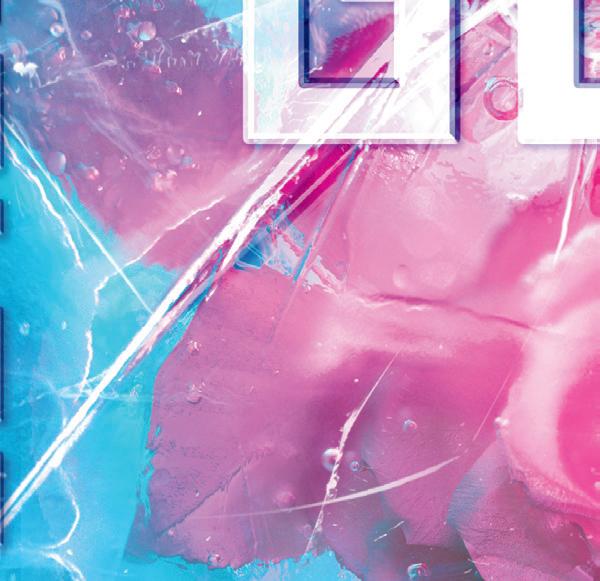
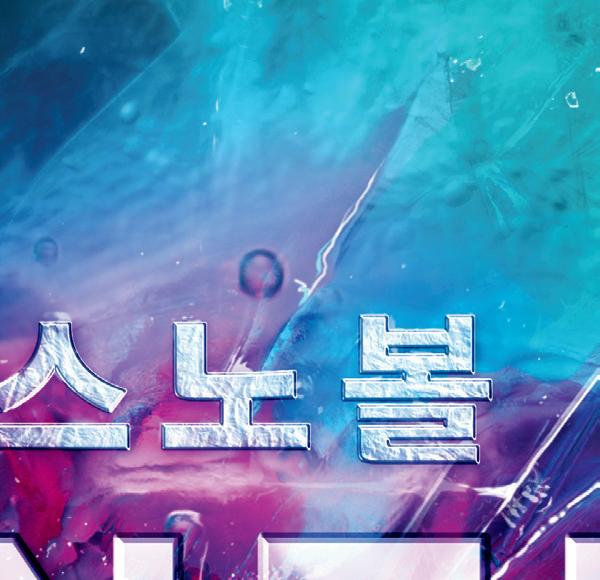
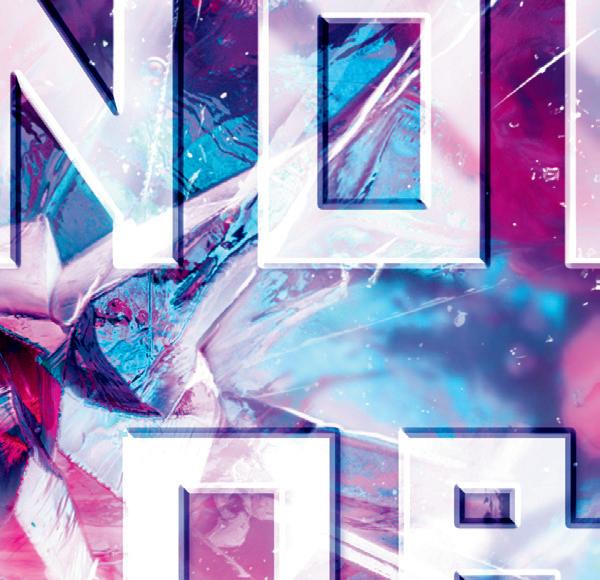
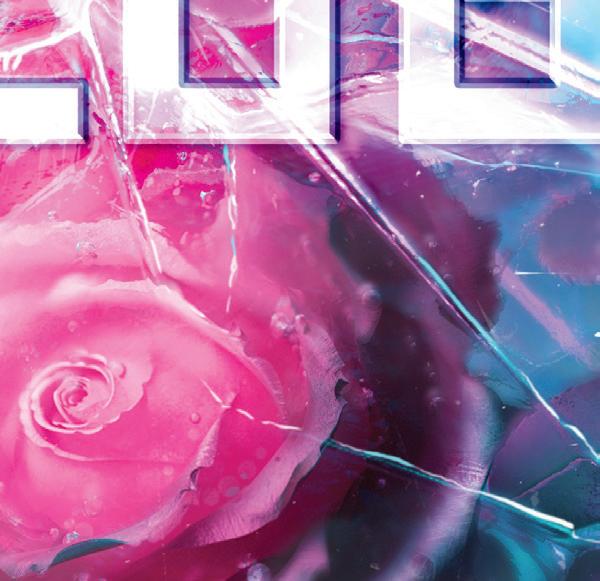

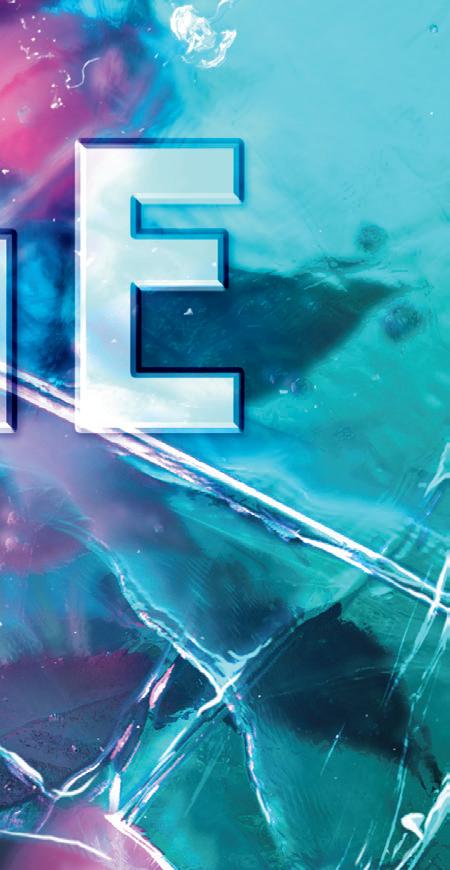

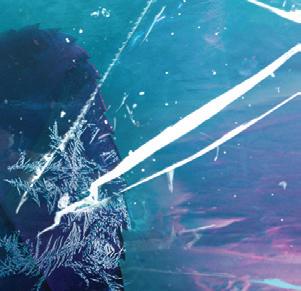
















Translated by Joungmin Lee Comfort
UK | USA | Canada | Ireland | Australia
India | New Zealand | South Africa
Penguin Books is part of the Penguin Random House group of companies whose addresses can be found at global.penguinrandomhouse.com
www.penguin.co.uk
www.puffin.co.uk
www.ladybird.co.uk
First published in the United States by Delacorte Press, an imprint of Random House Children’s Books, a division of Penguin Random House LLC, New York 2024
This edition published in the UK by Penguin Books 2024
001
Text copyright © Soyong Park, 2020 English translation copyright © Joungmin Lee Comfort, 2024
Cover art copyright © Sasha Vinogradova, 2024
The moral right of the author and illustrator has been asserted
This book is published with the support of the Literature Translation Institute of Korea (LTI Korea).
Interior design by Michelle Crowe
Printed and bound in Great Britain by Clays Ltd, Elcograf S.p.A.
The authorized representative in the EEA is Penguin Random House Ireland, Morrison Chambers, 32 Nassau Street, Dublin D02 YH68
A CIP catalogue record for this book is available from the British Library
ISBN: 978–0–241–68106–0
All correspondence to:
Penguin Books
Penguin Random House Children’s One Embassy Gardens, 8 Viaduct Gardens, London SW11 7BW
Penguin Random Hous e is committed to a sustainable future for our business, our readers and our planet. is book is made from Forest Stewardship Council® certified paper.
ACTORS
Jo Miryu
Goh Haeri
Goh Maeryung
Goh Sanghui
Goh Rhim
Goh Shihwang
Goh Wooyo
Kim Jenho
Bae Serin
Hwang Sannah
Jo Yeosu
DIRECTORS
Cha Seol
Cha Guibahng
Cha Hyang
PRODUCERS
Yibonn Media group:
Yi Bonyung
Yi Bonshim
Yi Bonwhe
In the living room, Grandma is sunk in her chair in front of her favorite TV show, a heavy quilt draped over her lap. I look down at the weather ticker scrolling away along the bottom of the screen.
-50°F
That’s a three- degree drop from yesterday. A snow- cloud icon trails the temperature, suggesting flurries throughout the day, and Grandma pushes herself out of the chair, shuffling to the electric space heater with the kettle in hand. My brother, Ongi, appears in the living room, wearing his standard morning look: a toothbrush in his mouth and a scowl on his face.
“I wish I were still in school!” he whines, because schools close in temperatures below -50°F.
“Just brush your teeth, please,” I respond flatly, which comes out garbled as I’m still brushing mine, and turn back to the TV. As usual, Grandma has it on Channel 60, the station that airs Goh Around round the clock.
“No! Hear me out,” Ongi persists, stepping in front of me
and ratcheting up the grievance in his voice. “I was sixteen ten months ago when I was in school. I’m still sixteen today, but just because I graduated, I’m now expected to endure this brutal temperature?”
His face is blocking my view of the TV. What does he want me to do about the weather? “Stop spraying toothpaste all over the floor, would you?” I snap, suddenly irritated.
Ongi is my twin brother born exactly ten minutes before me. He likes to pretend to be older and wiser, which is no end of laughable. He should know well by now that I only came second to make sure he got out safely—kind of like a captain being the last one off the ship. I’ve been taking care of him since we shared a womb.
Grandma, back in her sagging chair, swivels her head in our direction. “Ongi, my sweet,” she calls. “Don’t act like a baby in front of your girlfriend.”
Ongi’s eyes bug out, and he races to the kitchen sink, where he spits out the mouthful of foaming toothpaste with extra force.
“Grandma!” he cries. “Jeon Chobahm is not my girlfriend!”
Grandma has dementia, and she’s been confusing me with my brother’s nonexistent girlfriend for some time now.
I leave Ongi to stew and head back into the bathroom, where I turn on the wall-mounted faucet and fill the tin basin under it. When I scoop up the frigid water and rinse my mouth, the cold sends a shocking jolt through my teeth down to my jawbone, which immediately begins to ache. My hair is next. I’m staring into the basin, steeling myself against the brain- chilling assault to come, when Grandma appears at the
door with the kettle in her hand, a plume of steam escaping its spout.
“Watch out, dear,” she says, and stoops to carefully tip the kettle over the basin. “I made this hot water for Ongi, but he wants you to have it instead.”
I watch as she sticks her hand in the basin and swishes the water around to even out the temperature. Over the rising steam, her face is aglow with pride and joy that her grandson grew up to be such a considerate young person— a true gentleman who knows how to care for his girlfriend. Meanwhile, said young man is washing his hair at the kitchen sink, howling as he dips his head under the frigid stream. I can’t help but laugh at his antics as Grandma shuffles back toward the door with the empty kettle.
“Thank you, Grandma,” I say.
She stops in her tracks. Turning around slowly, she searches my face for a long moment with her watery eyes.
“You sound just like my granddaughter,” she says in a voice full of longing. Then she turns back around and heads out the door for her worn chair.
In the mudroom, Ongi and I struggle to pull on our heavy snow boots. It’s made all the more difficult by the layers of insulated clothes— tops, pants, and tights—we have on under our thick snow bibs. Next come out parkas, expedition-weight mittens, and ski masks. Then, finally, the hoods go up, and we’re ready.
“We’re off, Granny! See you later!” Ongi calls toward the living room in his usual upbeat tone.
But as he turns the doorknob, Grandma’s urgent voice stops us short.
“Wait! My goodness, Ongi! Chobahm is on TV!” she cries. Ongi and I exchange a look as she coos at the TV. “Aww . . . Chobahm! My sweet baby girl.”
I don’t have to look to know that it’s Goh Haeri on the screen. Ongi refuses to acknowledge it, but the beloved actress and I look very much alike. We even share the same birthday, and for what it’s worth, it so happens that we’re both lefties. But no one, except for Grandma, would ever mistake me for her, what with my rough cheeks perpetually inflamed from daily exposure to bone- dry, subzero air, and my coarse hair cropped short for quick washing in frigid water. In contrast, Haeri’s porcelain skin, rosy cheeks, and trademark long, shiny hair radiate her Snowglobe pedigree.
About Snowglobe. With the world now at an average annual temperature of -50°F, Snowglobe is the only place with a temperate climate— the only location with warmth and color—in the whole world. It’s a special settlement that was built atop a geothermal vent and is enclosed in a gigantic weatherproof glass dome. But not just anyone can live there. Its lucky residents are actors, whose unscripted lives are recorded in real time and edited into shows, which are then broadcast to the open world for entertainment. Goh Haeri isn’t just an actress, she’s a megastar, and she’s just been named the new weathercaster— one of the most coveted jobs in Snowglobe. She’ll set the record as the youngest weathercaster in the history of the settlement.
I turn a flat gaze to the TV screen. Dressed in a stylish suit, Haeri looks like she was born to fill the position.
“Hi, it’s Goh Haeri,” she greets the viewers in a buoyant tone. “I’m so excited and honored to be serving our community as the new weathercaster. Make sure to tune in to News at Nine on New Year’s Day!”
She treats us to her perfect smile, and then the camera cuts away.
I wonder, not for the first time, if I’ll ever be able to meet her in real life. If my hair grew in proportion to my desire for a life in Snowglobe, I could shave my head bare every night and I’d wake up the next day with it sweeping the floor. Sometimes I wonder if my intense longing for the place might be responsible for Grandma confusing me with Haeri— as though she can see my soul yearning to flee this godforsaken icebox in favor of Haeri’s life in Snowglobe.
Ongi turns back to the door, clucking his tongue in distaste.
“What?” I hiss, glowering back at him.
“If only you hadn’t talked so much nonsense about how you might be Goh Haeri’s lost twin and—”
“Stop.” I cut him off with a cuff to the ribs. I can feel the color rising to my face at the memory. “Unless you want to dig your way out of a snowbank!”
But he’s wearing too many layers to be warned off, and he boldly resumes running his mouth. I shove him and he shoves me back, and then we’re snatching at each other and ducking and banging into walls—until we finally end up laughing too hard to keep fighting and we pull ourselves together, then open the door and step outside.
Fifty degrees below zero. The frozen world welcomes us by snatching the breath from our lungs. My nose instantly
freezes and stings, and within a few blinks, ice crystals form on my eyelashes and cloud my view.
“It’s so damn cold,” Ongi says with a full-body shudder.
From age six, my twin brother and I accompanied each other to school every day for ten years. Since graduation in February, though, our daily commute has been to the power plant.
I look up at the marbled sky, its gunmetal gray promising a second squall in three days. In the bleak world below, squat log cabins dot the white expanses between tall pines, their branches heavy with snow.
Ongi and I start for the bus stop. Our commute to the power plant could be made on foot, but with a brooding sky like this, the bus is safer. We trudge through the knee-deep snow, and before long, my breath turns my ski mask into an icy mess over my mouth and nose— though better the mask than my face. A few feet ahead, Ongi pauses under a tree and waits for me to catch up. He can be so sweet, I think. But no sooner do I arrive than he jumps up to a branch to send an avalanche of snow down on my head and shoulders, laughing hysterically.
Seething, I scoop up a handful of snow and pack it into a tight ball. He bolts, shouting, “Race you to the bus stop!”
“Wait!” I shout, already on the move. “Jeon Ongi, you cheater!”
Snow grabs at our boots with each sinking step, rendering our best effort at a dash into more of a lurching shuffle.
“Loser does laundry for a month!” Ongi yells.
“Oh . . . You’re so done, Jeon Ongi!”
I struggle through the clinging trap of snow with everything I have. And when we dive for the bus stop, it’s my hand that touches its bent pole first.
“Ha! Who’s laughing now—” I say victoriously, gasping for breath. Sure, I won by a hair, but a win is a win. I’m bent over with my hands on my knees, catching my breath, when Ongi snatches my arm and jerks me behind him.
Annoyed, I straighten to see him narrowing a hard gaze at a figure ahead. Just another commuter waiting for the bus, so what about it? is my first thought, but then the person turns in our direction, and when she acknowledges us with an awkward dip of her head, neither Ongi nor I return it.
The woman is Jo Miryu, a former Snowglobe star. Discovered at nineteen, she lived in the settlement for seven years, starring in a hit noir series. She returned home a few years ago when the network abruptly canceled the series, and yet, at twenty-nine years old, she still has the face of a wood sprite and a frame that is five foot seven inches of pure grace. Her youthful innocence makes it all the more difficult to believe that the success of her series was due to the multiple homicides she committed throughout its run. By the time it was canceled, she had brutally murdered nine men, and her director had snatched the National Medal of Arts for outstanding directorial achievement. Like millions of her fans, I can recite a long list of other trivia about the starlet. I even know her blood type, which is A.
When Miryu returned home, however, she was shunned for the brutality she had dealt in Snowglobe. Even her own family fled to another town upon news of her homecoming,
unable to swallow the idea of welcoming a killer into their midst. Ongi and I were thirteen back then. I remember the whole town twitching with hysteria. Kids were being warned against her—we weren’t to speak to, or even make eye contact with, the woman if we happened upon her on the street.
I don’t know what it says about me, but I’ve always been more intrigued by her than terrified. There’s so much I’d like to ask her about Snowglobe. Ongi, who knows me like no other, digs his heels into the snow and shoots me a warning glance: Don’t even think about it.
Suddenly, the roar of gears rips through the air, and the dark green, rusted- out double- decker pulls to a stop. Buses— being the only means of transportation in our town—regularly pack in about a hundred commuters during rush hour. The door hisses open and the line begins to move, only to stop.
“Get off my bus!” Mr. Jaeri, the bus driver, erupts in an angry shout, and I look up to see that a few feet ahead, Miryu has just mounted the steps.
“Please . . . I just need to go to the post office,” she pleads in a small voice, but Mr. Jaeri throws out his arm and blocks her.
“I said, Get. Off. Now,” he rumbles.
All essential businesses and services— the post office, grocery stores, laundromats, clinics, and so on— are located inside the power plant. It’s convenient for most of us who already work at the plant, but not for an outcast like Miryu. They are left to sustain themselves with whatever game they can snare or fish they can catch in the wild and only go to the plant when they have no other choice.
“Please.” Miryu tries again. “My ankle’s hurt, I can barely walk. Can I please get a ride, just this once?”
Mr. Jaeri barks out a laugh.
“Oh, poor little cupcake,” he says in a mocking tone, then in a booming voice yells out, “No!”
“Why do you even engage with her?” someone shouts from inside the bus. “Let the others in, and let’s go already!”
A handful of children join in, “Yes, Mr. Jaeri, let’s go! Or we’re all going to be late for school!”
Miryu drops her gaze and, without another word, turns around and steps off the bus. People shuffle forward and we move ahead. I’m about to climb aboard behind Ongi when I hear a small “Excuse me.”
I turn to see Miryu staring at me pleadingly.
“Yes?” I manage to get out.
“Can you please stop by the post office and see if there’s any mail for me?” she asks, then adds apologetically, “The name is Jo Miryu.”
It takes me a moment, but I find myself nodding in agreement, too stunned to speak.
“Thank you. Thank you so much,” she says, her features softening with relief. “Can I meet you back here at the end of your day, then?”
I murmur a yes just as the line surges forward and pushes me up into the bus. Then the door is hissing shut, and Ongi shouts through the closing gap, “Don’t you wait for her!” He turns to me and in an angry whisper says, “Are you nuts? Don’t you know what she could do to you? Don’t you know what she’s capable of?”
I shrug, avoiding his gaze. He’s still furious when I murmur to no one in particular, “Sure, she killed nine men. But I’m not a man.”
“What?” Ongi breathes, staring at me with exasperation. Meanwhile, Mr. Jaeri shifts into gear and pulls away, chewing tensely on his bottom lip. He’s likely cursing his luck this morning. How could he not be worried about upsetting Miryu?
“Hi, sweeties!” Mom calls, waving at us from a corner of the power plant’s central hall, where she’s chatting with some friends.
The sight of her makes me feel lighter. We don’t get to see a lot of each other— there are a total of four shifts at the plant, assigned by lottery, and as a first- shift worker, she’s here from six a.m. to four p.m. every day.
I wave back and make a beeline for the stack of free TV Guide s on the nearby newsstand. TV Guide is a weekly magazine that provides the upcoming program schedules for the hundreds of Snowglobe channels available for viewing every day, and thus is essential for daily life. Honestly, depending on the week, the slim volume can be even more entertaining than the shows themselves. Reading about which new programs are about to premiere and which series are ending is always captivating, regardless of whether or not I tune in to them.
“Yes!” I exclaim under my breath as my eyes alight upon this week’s special feature— an interview with Cha Seol,
director of Goh Around, also known as the person I admire the most in the entire universe. I thumb the corner of the magazine, weighing my options. It’s tempting to just devour the whole article right now, but another part of me wants to wait and savor the pages in the comfort of my room at the end of a hard day’s work. I tuck the magazine away in my parka’s internal chest pocket, choosing the latter. A few moments later, though, I find myself reaching for it again.
“I’ll just check out the Tips,” I say to myself, taking out the guide. The Tips section, with its weekly career advice for aspiring actors and directors, is my favorite section of the magazine.
“Hey, Jeon Chobahm, are you even listening to me?” Ongi’s voice interrupts my focus, instantly annoying me. I lift my eyes to his scowling face. “I said, don’t you ever speak to that woman again, do you understand?” he says, reaching toward the stack of TV Guide s for his own copy. As much as I want to throw a retort back at him, it isn’t worth it to make a bigger deal of the incident, so I just brush him off.
“God, you need to relax, Jeon Ongi,” I say, looking back to the Tips.
A minute later, I’m pulled away again by the plant supervisor’s shout. “Hey, Jeon Ongi, you lazy lump!”
The man is standing by the loading dock across the hall, looking constipated, as usual. “What are you doing?” he yells more loudly. “Get over here and start unloading!”
Ongi takes off like a rocket. “On my way, sir!” he shouts in reply.
The two of them go through this routine daily. I’m
snickering when someone slaps me on the back, chirping, “Jeon Cho!”
I turn to see my friend Jaeyun flashing her toothy smile at me.
“Jaeyun! You’re back!” I cry, delighted. “How was your tour?”
“Good! I made it back in one piece,” she says, then continues wearily, “The storm raged for three days straight.”
Jaeyun is a train engineer on the Ja-line, one of the fourteen railways that comprise the freight network that extends, like arteries from a heart, from Snowglobe to the outer settlements. It’s via the railway that food and other essential supplies are distributed throughout the open world, as well as occasional nonessential items mail- ordered by those able to pay a stiff premium. Deliveries are dropped off at the power plant of each settlement along the routes. From the Gah-line to the Ha-line, train engineers are selected from towns situated at the line’s terminus— settlements on the fringes of civilization, like my hometown settlement. Jaeyun, who is only a few years older than me, has held the position for six years now.
“Did you know that the TV in the engineer’s cab turns off in bad weather?” she says, rolling her eyes. “So here I am, staring at nothing but the infinite tracks ahead, all alone in my cab without anything to distract myself with. The wind is screaming. Snow’s blowing everywhere. And as if that’s not enough, thunder is sounding right above my head. The next thing I know, I’m on my knees, praying for the first time in my life.”
She pauses to shudder for emphasis, but I know her
dramatics are mostly for my entertainment. In truth, she’s one of the bravest people I know. She wouldn’t be doing what she does, otherwise. But I play along.
“Oh, man. You have to tell Ongi about it when you see him,” I say. “The wimp thinks he wants to be a train engineer.”
In fact, the only reason Ongi is volunteering as a warehouse hand is to keep a close eye on all things rail-related. With Jo Woong, the other engineer of the Ja-line, nearing retirement, the supervisor is said to be scouting about for his replacement.
“Ongi?” Jaeyun says, surprised. “I thought he wanted to stay close to home.”
I give her a blank look. If he does, it’s news to me. When I’m silent, she continues, “Considering your grandmother’s health? Who’d take care of her when you go off to film school, if Ongi has to spend half a year away from home on a train? He should stick around, for her sake.”
Oh, film school . . . I shrink into myself, the stock line in the stock rejection letter I received a week ago all too fresh: While your skill set and potential are impressive, we regret to inform you that we are not offering you admission . . .
Snowglobe’s Film Academy is the most prestigious educational institution in the world, producing top-ranking directors year after year. The rejection letter is the second of its kind I’ve received, the same as the one I got last year.
I squirm on my feet as Jaeyun, clueless, flips through TV Guide and finds this week’s special feature. The boxed copy containing Director Cha’s quick bio, which I already know by heart, jumps out at me. She was one of those brilliant
people who was accepted into the academy on her first try, and graduated with the highest distinction to boot.
“You’re not going to treat me like a stranger when you become this famous, are you?” Jaeyun teases, jabbing me lightly with her elbow.
Fighting back the shame rising up inside me, I deadpan, “Of course I am. What do you think?” and the two of us burst into laughter.
I try to enjoy the moment, pushing the rejection letter from my mind. After all, what matters is that I will create the most amazing show of all time, the kind no director has ever produced before. As long as I know that, I can’t beat myself up over the when of it. What’s a few years’ delay in the great scheme of things? Nothing. At least, that’s what I have to tell myself. Because if I stop believing in my future, I’m afraid I won’t be able to endure the punishing monotony and hopelessness of my so- called life. Not for another minute.
“Second shift! Get moving!” the supervisor shouts, and the two hundred or so workers scattered around the hall begin shuffling toward the gigantic motor in the center.
“Come on!” he urges. “Hustle!” He starts his obnoxious marching clap, the rhythm of which we follow to position ourselves at the workstations: human- sized hamster wheels connected to the central motor. Those of us with odd ID numbers begin the shift by walking inside the wheels, while those with even ID numbers begin the shift sitting just outside the wheels, working the hand cranks attached to the wheels’ stub axles. As the wheels turn, their kinetic energy
is harnessed through a mechanical amplifier coupled to an electromagnetic energy harvester, whose output subsequently turns the central motor to generate electricity. Simply put, power production depends entirely on human physical labor, without which our world would screech to a halt. There wouldn’t be freight trains or commuter buses, not to mention electric kettles that can heat up ice- cold water in minutes for a hot cup of cocoa. Forget hot cocoa. The stench of all the sweaty, unbathed laborers alone would pose a serious public health hazard.
I start my shift inside the wheel, doing a kind of speed walk to sustain the minimum speed of four miles per hour required to power the wheel’s built-in TV screen. My need for entertainment aside, a sleeping screen is sure to draw the super visor to my wheel like a paper clip to a magnet, and then I’d have to suffer his insults up close.
—Where’s your sense of community?
—If you’re not willing to contribute to society, why don’t you just walk out there and freeze to death?
. . . and so on and so forth.
I put on the headphones corded to the TV and click the remote to Channel 60— Goh Around. It’s my go-to choice for when I want to turn my mind off. Having seen all the available episodes aside from a few, I can let my attention drift in and out and still keep up with the show’s general narrative.
“Those who work at a pace of exactly four miles per hour”— the supervisor’s voice pierces through my headphones, jarring me—“are the type of losers with no ambition, no drive, and no future prospects. The dregs of society.”
Turning my head, I’m jolted to see him right next to my wheel, a megaphone raised to his mouth.
“How can one be so content with doing the bare minimum? Would it kill you to be of use to society?” he thunders. Leaning sideways against the handlebar, he stares at me with open contempt.
Would it kill him to be just a little bit less obnoxious? I think. Suddenly, Miryu’s face rises before my eyes. I wonder if the supervisor would have the guts to talk to her this way. Fat chance. Trying to ignore his glare, I replay the exchange with Miryu this morning in my head. Whose mail is she waiting for? Her estranged family’s? Or something from the ex still alive in Snowglobe?
“Turn up the heat, all of you!” barks the supervisor, finally pivoting on his heels and marching away from me. “At this rate, we won’t even be able to pay for the streaming service!”
A collective groan goes up at that particular threat. Still, it delivers the desired effect. Everyone picks up the pace, moving a bit more vigorously.
Most of the electricity produced by laborers like us in the open world is sent to Snowglobe, where it powers the lives of the actors who dwell within the domed superstructure. In exchange, they share their lives with us in the form of reality shows.
The whir and vibration of the central motor intensify. It isn’t long before my sweat- soaked thermals begin clinging to my skin.
“Folks, it was only a couple of generations ago that the pit toilet was the norm.” The supervisor’s amplified voice descends from the second floor this time. Here he goes again. I
fasten my eyes back on the TV screen and crank up the headphones’ volume.
Christmas being only two days away, Channel 60 is marathon- showing every Christmas- themed episode of Goh Around. Presently, four-year- old Haeri is playing quietly with her doll, a diamond bracelet adorning her tiny wrist. Her mom, sitting by her side and watching her play, wants to know if Haeri likes the bracelet, her Christmas gift. Haeri says nothing. In fact, she doesn’t even appear to hear her mother.
I’ve seen this episode before. At this point in the show, Haeri has been mute since the Halloween party a few months prior, where she had a terror-induced seizure following an encounter with someone dressed as a ghost. Though I know that Haeri regains her speech and her smile by spring, these episodes always break my heart.
The camera zooms in on little Haeri’s angelic face.
“The pit toilet was every little kid’s nightmare.” The super visor’s voice works itself through my headphones once again, overlaying the scene on my TV screen like some sort of absurd voice- over. “And for a good reason! Do you know how many people fell into those pits of waste during their midnight visits?”
Though I’m not especially squeamish, it’s disorienting to be so rudely jerked back into the world of the pit toilet while my eyes are resting on Haeri’s dreamy life. Without my permission, the image of the closed- off pit toilet at our own house flashes through my mind. In the background, the supervisor rambles on. He never stops.
“How would you have liked it if you’d had to peel down
your pants and squat over the steaming pit in fifty below? Would you have frozen your ass off or what?”
Before the advent of the electromagnetic energy-harvesting technology, electricity was an incredibly rare commodity. No access to it meant there was no way to prevent frozen or burst pipes, making indoor plumbing a dream for common people.
“What a time to be alive!” the supervisor intones. Producing an apple from his vest pocket and raising it to his mouth, he adds, “Do you know how lucky we are?” Without waiting for an answer, he crunches into the fruit.
Every day, each worker gets a ration of fresh fruit and vegetables, which are grown in the greenhouse inside the power plant. The cost of maintaining such a greenhouse is deducted from our paychecks, of course. Today’s lunch included exactly one- eighth of an apple. But not for the supervisor, apparently.
“Lucky? Ha! He must have gotten all our shares of luck, then. Gobbling up a whole apple just for himself,” Mom grumbles inside her wheel, adjacent to mine. Darting a quick glance around us, she leans toward my wheel. “Is what Ongi told me true?” she whispers. “You spoke to that woman?”
She is referring to Miryu, of course. That woman. That monster. That bitch. Just a few of the monikers people have adopted so as to avoid speaking her true, vile name.
“Yup,” I say, trying to sound casual. “It was really nothing, though. Mr. Jaeri wouldn’t let her on the bus, so she asked me to stop by the post office to see if she has any mail.”
Mom gasps, her eyes wide with alarm.
“Sweetie,” she exhales. “Do you have any idea how dangerous that woman is?”
She looks ready to lunge for my remote and switch my screen to The Killer Next Door as proof. At home, the show is banned for its scandalous, violent content, which my mother has deemed inappropriate for developing minds. She doesn’t know that Ongi and I already binged the entire series— seasons one through seven—in secret, over ninth- grade winter break while she was at work and Grandma was napping.
“I know, Mom,” I assure her, thinking back to the emotionless look on Miryu’s face in one episode, when she’d leveled her gun at the man she’d fallen head over heels for in spite of herself. How does a person do that? What went through her mind? I know Mom would kill me if she could hear my thoughts right now, but I can’t help myself— the questions bubble up on their own.
And it isn’t just Miryu I consider. What would I have done, had I been her director? How would I have handled an actor like Miryu? What kind of decisions would I have found myself making—not just as a director, but also as a human being? Would I, too, have continued to work on a show filled with savage acts of betrayal and murder? Say what you will, but the show’s ratings record is yet to be broken years after its final episode aired.
The image in my mind switches to one of Miryu’s acclaimed directors, Cha Guibahng, receiving his National Medal of Arts for her show. But in the next moment, his solemn face morphs into my own, and suddenly it’s me standing before the sea of flashing cameras, the same gold medal glimmering on my chest. My pulse quickens at the vision, and I feel a surge of energy through my legs turning the wheel. Before I know it, I’m running. Sprinting.
One day, I’ll break out of this icebox, this tomb of deprivation and bleak uniformity. I’ll get to Snowglobe, where I’m certain my story is waiting for me— a story that I, and I alone, can bring to life. Inside my wheel spinning to nowhere, I can already see myself there.
After my shift, I head for the post office, sailing down the long, narrow plaza that connects the central motor hall with the plant’s main entrance. Essential businesses line the sides of the plaza, all a drab gray that makes them blur into each other. Even the post office is just another hole in the wall—nothing like the shiny, candy- apple-red buildings in Snowglobe. But what does it matter; we’re lucky to have a post office. Without it, we’d lose touch with friends and family who aren’t nearby, and mail- ordering anything from Snowglobe would just be a dream. High postage rates mean the place is rarely busy, though, and ordering anything from Snowglobe is a rare luxury.
Still, every year, Mom splurges on our birthday cake, which she orders from a special bakery in Snowglobe. The gorgeous cake, made to order by the pâtissier— an actor, of course— travels all the way to our post office by train. Thinking about it makes my heart swell; me and my brother will be lighting candles and hearing our family sing “Happy Birthday” in just a few days.
“Hi, Chobahm!” Suji says from behind the counter, the grin on her face so giddy it makes it seem like she’s been waiting for me all day long.
Suji uses a wheelchair because she was born without the use of her legs. Since she can’t work the hamster wheels, she fulfills her civic duty at the post office instead.
I return her greeting and begin to say, “Do you have mail for—” I don’t even get to utter Miryu’s name before Suji thrusts a shiny gold envelope at me across the counter.
“Check out the front,” she says, barely able to contain her excitement.
Puzzled, I turn it over and reveal a red wax seal embossed with the most recognizable logo of them all, that of the Yibonn Media Group. The Yibonn Media Group, which everyone calls the Yibonn, owns, controls, and operates the Snowglobe broadcasting system. In turn, the distinguished Yi family descending from the eponymous founder of the company, Yi Bonn, is commonly called the Yibonns, as opposed to the too- ordinary Yis, which is a reflection of society’s esteem for the family’s role in establishing the institutional framework that has sustained the Snowglobe order all these years.
“It’s from Yujin!” Suji cries out.
My eyes round with surprise and I tilt the card- sized envelope this way and that under the light, taking in its elegant gold shimmer.
“Don’t get choked up yet,” Suji says, rolling her wheelchair back a few feet to a small pile on the floor covered in gray cloth. With a magician’s flourish, she pulls back the fabric, and my jaw drops.
It’s a washtub- sized box full of brownies. I’ve seen brownies
countless times on TV, with them being Haeri’s favorite treat and all, but never in real life. And these brownies are adorable— decorated with Christmas trees made out of red and green frosting. A pen in one hand, Suji begins checking off the items on the shipment list.
“Ten bottles of orange juice: check. A box of fresh strawberries: check.”
My nose begins to burn like it does when tears come.
Yujin, my best friend, is the first Snowglobe actor to come from our town since Miryu ten years ago. The thought makes my heart swell all over again, and I’m touched that she found the time to send me a note— and all these amazing gifts— only two months after moving to Snowglobe.
Snowglobe.
“Oh, right,” I murmur, suddenly remembering my mission. “Do you have any mail for Jo Miryu?”
Suji lifts her gaze and gives me a quizzical look. When I don’t correct myself, she makes a sour face. “Who would send anything to her?”
I shrug. She returns to the shipment list, and I tuck Yujin’s card in my chest pocket like the rare treasure that it is.
“Shin Yujin sent you fresh strawberries? A whole box?” Ongi cries in amazement, helping me stow the full sled in the bus’s luggage compartment. Suji insisted that I borrow it to haul the bounty home.
I gesture for him to quiet down, conscious of everyone about to board the bus with us, many of whom have never tasted fresh strawberries.
“How many bottles of orange juice, did you say?” Ongi asks, hushing his voice.
“Nine,” I mouth, leaving out the fact that I gave a bottle to Suji. Fresh strawberries, orange juice, brownies . . . saliva pools in my mouth at the thought of sharing the treats with Mom and Grandma when we get home.
Approaching our stop, I’m surprised not to see Miryu waiting for me. She seemed so desperate. Overhead, the gloomy sky is closing up for the evening, so Ongi and I don our headlamps.
I feel a pang of disappointment and turn up my headlight, sweeping the area with its beam again.
“Would you please listen to your older brother?” Ongi warns. “You will stay far away from that woman. You will!”
He steps into his skis and I grab the sled’s pull rope and attach it to his harness. Ongi has volunteered to be the beast of burden in appreciation of his good luck, and being the big brother of a sister with connections in Snowglobe.
I carefully scan the area one last time for Miryu, ignoring Ongi’s impatient look, and a faint, shadowy form begins to take shape in the murk at the base of a nearby tree. Before I know it, I’m already moving toward it.
“Hey! Where are you going?” Ongi yells. “Come back!”
He rushes after me, but the loaded sled he’s tethered to hampers him and I make it to the tree alone. To my amazement, the dark pile reveals itself to be a person crumpled on the ground. My heart slams. I quickly drop to one knee beside the figure and turn them over onto their side, peeling the ski mask down under their chin so I can listen and feel
for breath. And that’s when my heart slams for the second time. It’s Miryu, blood leaching out of her scalp and crusting on her forehead. Fighting down the dread surging inside me, I bring my ear close to her mouth and nose. She’s breathing.
“Jeon Chobahm! Step away, right now!” Ongi shouts furiously, wrestling with the rope he’s managed to get tangled in.
Turning back to Miryu, I try to rouse her.
“Miss, are you okay? Open your eyes, please!”
No response. I give her shoulder a hard shake. “Miryu! Wake up!”
Her eyelids flutter ever so slightly.
“Please! You can’t sleep here!” I shout, and slide my hands under her arms so I can drag her through the snow toward the sled. But the two layers of thick mittens I have on keep slipping and sliding around and I can’t keep a grip on her, so I peel them off and hold them in my teeth.
“What the hell are you doing?!” Ongi demands. He’s right in my face now, finally having freed himself. But this is no time to argue.
“Unload the sled, please,” I tell him, breathing heavily. “Quick. We need to get her to the plant.” Without waiting for his response, I continue on toward the main road with Miryu, heart pounding. She’s surprisingly heavy. Deadweight. I think I can finally appreciate the full meaning of the word. And thank goodness for the boost of adrenaline coursing through my veins right now.
The plant houses the clinic, but the next outbound shuttle isn’t until daybreak, and Miryu needs immediate medical attention.
“We’ll have to use the sled to take her there ourselves,” I tell Ongi.
“Are you insane?” he erupts, snatching my wrist. “To save a murderer?”
“What other choice do we have? Just leave her to die out here?” I shout back, letting my eyes cut into him. My vehemence seems to throw him off for a moment, but then he strengthens his grip around my wrist.
“Come on. It’s nearly sixty below,” he says, pleading now. “It’s not safe to be outside for more than half an hour!”
He’s right. Truth be told, I’m not all that confident that I could make it to the clinic within thirty minutes, not while towing a full- grown woman behind me on a sled. Still, I’ll have to try. I’m good on skis.
“That’s why I am going,” I respond, wrenching myself free and snatching the ski poles from his other hand.
Ongi stamps his feet in frustration. “You’ll freeze to death in the middle of nowhere!”
“If Dad had been a chicken like you, we wouldn’t even be here!” I shout back. “Do you know that, Jeon Ongi?”
His face goes blank. That may have been harsh, but I’m too worked up for calm deliberation.
“I’m not going to die today,” I tell him. “There’s too much I want to do; I won’t let it happen. I promise.”
He stares at me. Then, squeezing his eyes shut, he pulls the thick wool hat over his face and screams into it for a long breath. After he’s done, he empties the sled and helps me load Miryu onto it.
“I’ll go home and gear up,” he says. “Catch up with you as soon as I can.” And then he’s off, kicking up snow.
My twin brother is going to save me in case I keel over on the way. I don’t argue with him, not that I have the time.
Thirty minutes is all I need. I’ll be fine. I pick up the sled’s tether, then draw a big breath, plant my poles in the snow, and push off with my left foot. The heavy sled makes it rough going at first; but it isn’t long before I get into a steady rhythm.
Whoosh, whoosh—
My skis glide smoothly over the snow as I set off down the road, following in the tracks laid by the shuttle. A thousand thoughts swirl in my mind, but I keep focused on the path ahead. You never know when the odd elk or wild horse might surprise you by jumping into the road.
Every so often, I find myself glancing over my shoulder to look at Miryu on the sled. After all, it’s just me and the ruthless killer out here in the dark, and the thought sends a fresh chill down my spine every time it occurs to me. “Focus, focus . . . ,” I chant aloud to drive away the creeping unease, fastening my eyes on the path before me.
I’m not sure how long it’s been, but the sparsely illuminated road ahead seems to stretch on endlessly. In the beam of my headlamp, trees cast dark shadows on the snowy ground before closing in on me like falling dominoes. Doubt rears up inside me, quickening my breath; and the heavy- duty ski mask I’m wearing doesn’t help. I want so badly to yank it off, but doing that in this temperature would be beyond foolish.
Pulling a full sled on skis is vigorous exercise, no doubt, and I’m damp with sweat. Still, my body is losing heat faster than it can generate more. My legs seem to be slowing down, and maybe my mind is, too, when the sky—without preliminary
flurries or spitting flakes— decides to unleash a genuine squall. Just my luck. I hunch into the wind.
Stuffing back the feeling of doom rising within me, I replay the story Mom likes to tell us.
It was in the early days of Mr. Jaeri’s shuttle- driving career. One morning after a storm, the wheel got away from him and the bus spun across the slick road into a ditch. In his inexperience, Mr. Jaeri kept revving the engine, which only drove the wheels deeper into the glaze of ice hidden under the snow, further canting the bus at an unnerving angle. Needless to say, the bus couldn’t simply be picked up and put back on the road by Mr. Jaeri and the unlucky riders. To make matters worse, there was only an hour or so’s fuel left to keep the engine alive for heat. After that, the temperature inside the bus would plunge to match the frozen tundra’s, turning it into a walk-in freezer. The chance of another motorist coming by and seeing the stranded bus was close to nil, as the only other vehicle in town was a quasi- ambulance used by the plant’s physician for house calls.
Thankfully, Dad and his heavily pregnant wife, Mom, were among the passengers on that fateful day. Seeing no other way to save his wife and unborn twins, Dad set off for the plant on skis, a trip that would normally take forty minutes by bus.
It was about two hours later that the stiff, frost-rimed passengers, now huddled together for warmth inside the dead bus, heard the approaching sirens. Minutes later, they were evacuated to the clinic for emergency care. It was there that Mom finally saw Dad again, lying in the ICU, his skin gangrened black and blue from frostbite.